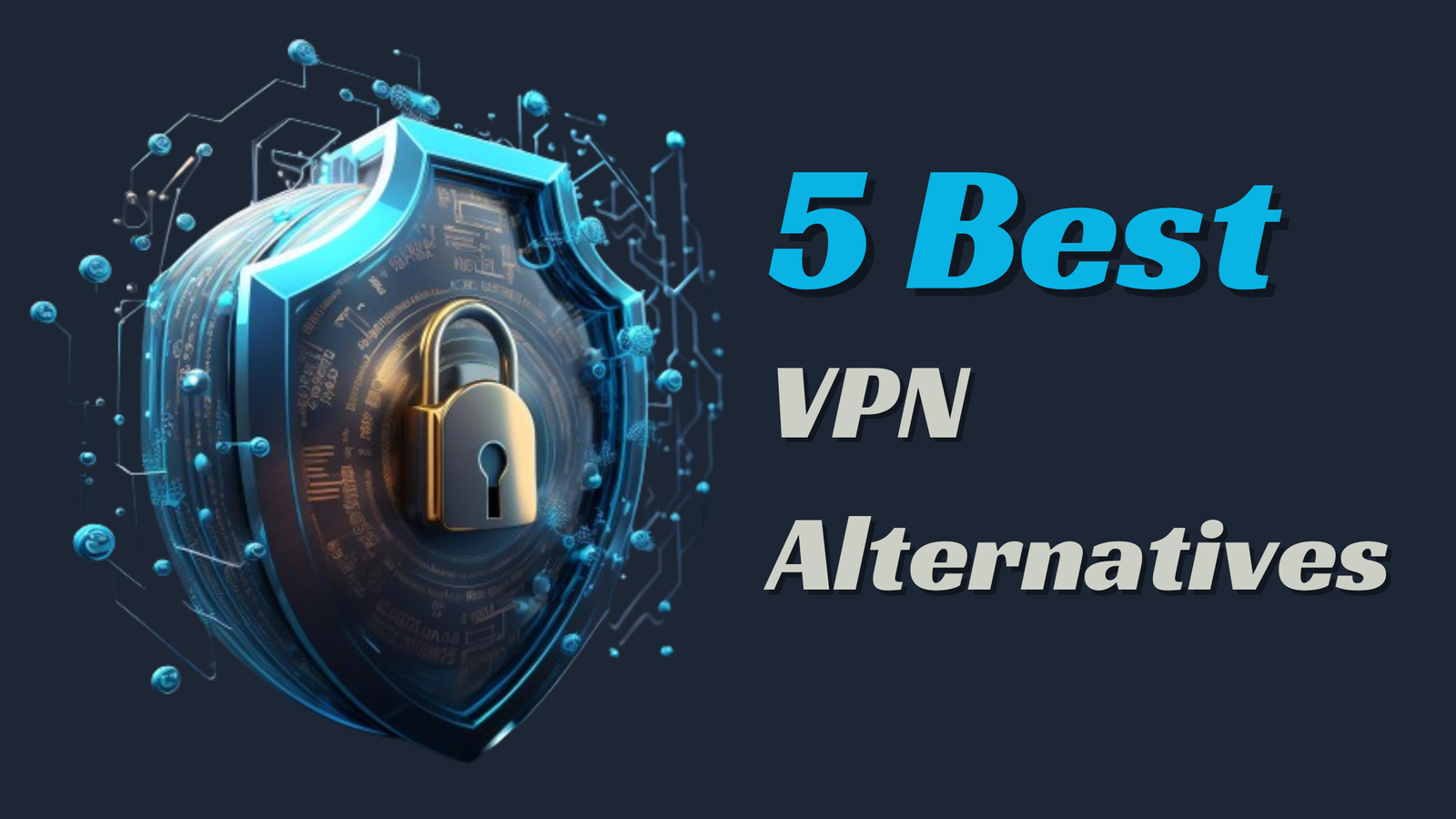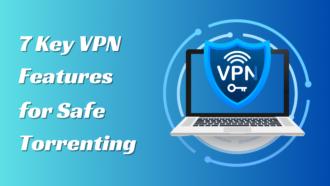5 Best VPN Alternatives in 2024
In Short:
- Zero-Trust Network Access: Provides comprehensive confidentiality by limiting network access even within internal users.
- SSH Tunnels: This service offers encrypted tunnels for secure data exchange, similar to VPNs, but focuses on encryption.
- Software-defined Perimeter (SDP) and Secure Access Service Edge (SASE) are dynamic security protocols that authenticate users and provide secure connections, reducing attack surfaces.
Privacy and confidentiality are necessities online, especially regarding sensitive data exchange or online transactions.
VPN, short for Virtual Private Network, is a technology that helps websites and networks maintain confidentiality and integrity in online communication. It is a go-to option for every small and large company to safeguard its network. However, with technological advancements, better and cheaper VPN replacements were born.
This blog discusses VPN alternatives and the best options in the market in 2024!
What are Virtual Private Networks (VPNs)?
A VPN is a digital technology that establishes a secret, secure, encrypted connection on the Internet. This allows users to exchange information and carry out online transactions in secrecy.
This tunnel keeps all unauthorized traffic from finding the network by searching for a safer and farther route to the other end.
Nowadays, there are different VPN replacements on the market. Let’s look at the best VPN alternatives available for your network.
5 Best VPN Alternatives in 2024
Zero-Trust Network Access
Zero-trust network access is a security model for networks that need complete confidentiality. With a VPN, even if your network is hidden from the outside world, users within it can access it without further authentication.
That is how zero-trust and VPN are different. With the zero-trust model, the user is shielded from the network and the Internet, so they do not gain access to parts of the network to which they are not permitted.
- ZTNA operates on the principle of least privilege, meaning users only have access to the resources they explicitly need for their tasks. Minimizing the attack surface ensures a higher level of security.
- Unlike traditional VPNs, ZTNA doesn’t grant blanket access to the entire network. Instead, it authenticates and authorizes users per session, reducing the risk of unauthorized access.
SSH Tunnels
Secure Shell Tunnels, or SSH tunnels, offer a secret tunnel to exchange data and information online. This is done with the help of encryption and decryption technology.
They work on similar levels to VPNs since they provide this tunnel or secure space for your online communication. This can be a fantastic option for your enterprise’s VPN alternative.
- SSH tunnels leverage the Secure Shell protocol to create encrypted connections between devices over an unsecured network. They’re commonly used for secure remote access and data transfer.
- While SSH tunnels provide a level of security similar to VPNs, they’re typically more limited in functionality and scalability. However, SSH tunnels can be highly effective for specific use cases like remote server administration or secure file transfer.
Software Defined Perimeter
A Software-defined Perimeter (SDP) is a network security protocol that offers a dynamic and customized approach to your network’s security. SDP authenticates and authorizes users’ identities by verifying them, which grants access to definitive and classified resources or applications only then.
It is one of the most widely known security systems because it benefits the network by reducing the surface area of potential attacks and enhancing security. It is also a great VPN replacement.
- SDP dynamically creates individualized, micro-segmented perimeters around each user and device, effectively cloaking the network from unauthorized access.
- By authenticating and authorizing users before granting access to resources, SDP significantly reduces the risk of insider threats and lateral movement within the network.
- SDP’s adaptability and scalability make it a robust alternative to traditional VPNs, particularly in environments that require granular access control.
Secure Access Service Edge
SASE, or Secure Access Service Edge, can be an excellent alternative for VPNs since it provides great security online. As the name suggests, it protects secure connections.
It integrates the software-defined vast area network and other security services. It allows users to connect to their network anywhere worldwide while providing a safe and secure environment.
- SASE combines network security functions with wide-area networking capabilities, offering a comprehensive cloud-based security solution.
- Routing traffic through a cloud-based security stack, SASE provides consistent security enforcement regardless of the user’s location or device.
- SASE’s scalability and flexibility make it well-suited for modern distributed workforces. It provides secure access to corporate resources anywhere in the World.
Proxies
Proxies are mediators or intermediaries between the users and the rest of the Internet. It forwards login requests on behalf of the user. That said, it is not as secure as a VPN, but it is very affordable and does the work.
- Proxies act as intermediaries between users and the Internet, forwarding requests on the user’s behalf. They can provide anonymity and access control but typically lack VPNs’ robust encryption and security features.
- While proxies are more affordable and accessible to set up than VPNs, they’re generally less secure and may not be suitable for environments requiring stringent security measures.
- However, proxies can still be helpful for specific use cases, such as bypassing geo-restrictions or filtering web content within a controlled environment.
Ending Notes
These were the best VPN alternatives for 2024. The digital security landscape changes daily, so you must stay current regarding rising technologies. If a digital security tool, like zero-trust network access or proxies, provides a more secure environment than a VPN, you can go for it.
FAQs:
What makes Zero-Trust Network Access different from VPNs?
Zero-Trust Network Access restricts internal user access, ensuring stringent confidentiality, whereas VPNs primarily focus on securing external connections to the network.
Are SSH Tunnels as secure as VPNs?
SSH Tunnels provide encryption for data exchange, offering comparable security to VPNs for online communication.
How does Software Defined Perimeter (SDP) enhance network security?
SDP verifies user identities before granting access to specific network resources, reducing the risk of unauthorized access and potential attacks.
What is the advantage of Secure Access Service Edge (SASE) over traditional VPNs?
SASE integrates software-defined networking and security services, providing secure connections globally while offering enhanced security measures.
Are proxies a reliable alternative to VPNs?
Proxies act as intermediaries between users and the Internet, forwarding requests, but they lack VPNs’ comprehensive encryption and security features.
Why should one consider exploring alternatives to traditional VPNs?
With evolving digital security threats, staying updated on emerging technologies like zero-trust network access and SDP ensures a proactive approach to safeguarding networks.


















